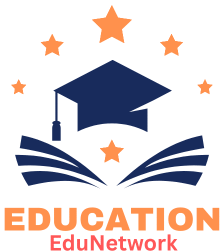Introduction
The last decade has seen a rise in the need for higher education consultants as institutions respond to changing student demographics, new technological developments, and fiercer global competition. Academic planning and enrolment management are only two of the many areas where consultants help schools overcome challenges and take advantage of opportunities.
Exciting, dynamic, and intellectually fascinating employment are available in higher education consulting for both recent graduates and experienced professionals seeking a career move.
Discover all you need to know about higher education consulting on this page. From the definition to the several job types, the credentials needed for each, average wages, and entry-level guidance, this website has you covered in this competitive but growing field.
What Is Higher Education Consulting?
Consulting in the field of higher education entails providing institutions and related organisations with strategic advice and practical solutions. Experts in the field of consulting look at how businesses function and provide advice in areas like:
-
Create new educational initiatives
-
Bringing in fresh faces and keeping the ones you have
-
Promotion and identification for businesses
-
Data analysis and technological implementation
-
Compliance with the rules
-
Taking future-proofing and sustainability into account
Globalisation, inclusion and diversity, leadership development, and digital transformation are four areas where many businesses provide consults.
Types of Jobs in Higher Education Consulting
From senior advisor to entry-level analytics, the consulting industry in higher education provides a diverse spectrum of employment. Common job titles often consist of:
1. Education Consultant
In order to improve academic performance, streamline administrative processes, and launch innovative initiatives, universities team up with education consultants. They could also team up with groups that serve the public good or are part of the government.
2. The Process of Admissions Counsellor
In order to help schools increase their retention rates, streamline their admissions process, and find and hire top talent, these consultants provide data-driven strategies.
3. Academic Strategy Consultant
The primary responsibilities of this position are to assist educational institutions in developing new degree programs, improving the delivery of existing curriculum, and ensuring that academic offerings align with market demand.
4. Analytics and Data Consultant
The growing importance of data in decision-making has many companies seeking expertise from consultants in areas such as institutional research, business intelligence implementation, and predictive analytics.
5. Consultant for Educational Technology
Professionals specialising in technology consulting are often sought after by educational institutions for assistance in the selection and implementation of various digital technologies.
6. Financial Aid Consultant
Finding a happy medium between cost and sustainability is a challenge for educational institutions. Financial aid optimisation experts may help.
7. Consultant for Employment Equity, Diversity, and Inclusion
Consultants that specialise in diversity, equity, and inclusion (DEI) aim to improve workplace equality and inclusion by developing policies, educating staff, and evaluating current practices.
Who Makes Use of Consultants in the Field of Higher Learning?
Several companies provide opportunities for consultant work in the field of higher education, such as:
-
Some examples of speciality consulting firms that focus primarily on education include Huron Consulting Group, Ruffalo Noel Levitz, and EAB.
-
International powerhouses in consulting for education (such Deloitte, PwC, EY, and McKinsey & Company)
-
Lumina Foundation and the American Council on Education are two examples of nonprofit policy organisations
-
Freelancers providing businesses with outsourced specialist services
-
Jobs in schools and universities labelled “Strategic Advisor” or “Institutional Planning Analyst”
A List of Must-Have Skills and Credentials
While specific job descriptions for consultants in the field of higher education may call for different qualifications, the following are usually required:
1. Previous Academic Publications
The bare minimum is a bachelor’s degree, and common majors include economics, government, education, and data analytics.
Many companies encourage or even demand that candidates have a master’s degree, such as an MBA, MPA, or Ph.D. in academic consulting.
2. Industry Familiarity
The intricacies of the academic setting must be grasped. Academic governance, student lifecycle management, accreditation, and financial plans are all part of this.
3. Efficiently Assessing
Data collection, analysis (both qualitative and quantitative), and the provision of workable solutions are all skills that consultants should possess.
4. Communication Skills
Consultants need exceptional communication skills to convince stakeholders and clients of complex ideas.
5. Executing Projects
Expertise in time management, prioritisation, and collaboration are essential skills for consultants overseeing several projects.
6. Artificial Intelligence System
Highly desirable skills include knowledge of data visualisation tools (such as Tableau and Power BI), educational software, and customer relationship management (CRM) systems (such as Salesforce).
Revenue Anticipation
The amount you earn as a higher education consultant might vary greatly depending on your level of experience, the industry you work in, and the organisation you represent. To give you an overview:
-
Analyst Entry Level Salary: $55,000 to $75,000 Per Year
-
Consultant Associate: $75,000 to $70,000
-
Senior Consultant: $90,000 to $130,000
-
Principal or Manager: $120,000 to $170,000
-
Partner or Director: $180,000
Hourly rates for independent consultants may range from $50 to $200+, depending on their skill set and market demand.
Academic Consulting: A Complete Guide for Newcomers
If you are thinking about working as a consultant in the field of higher education, you may find the following concepts interesting:
1. Lay the Groundwork for a Strong Educational System
Obtain a bachelor’s degree in an academic field such as business, education, or teaching. Getting a master’s degree is a great first step towards climbing the corporate ladder.
2. Gain Familiarity with Higher Education Concepts
People working in administrative roles at schools may potentially have access to sensitive information. Some background in academic affairs, student services, admissions, or institutional research would be a huge plus.
3. Hone Your Technical Skills
Master the fundamentals of using common software applications used in academic and consulting environments, such as Excel, Tableau, SQL, and school-specific applications.
4. Network with Like-Minded Professionals
Sign up with a group that caters to your field, such NASPA, AIR, or the National Association of College Admission Counsellors (NACAC). Embrace opportunities for career advancement.
5. Get Your Feet Wet with an Internship or Entry-Level Job
Consulting firms are increasingly offering internships to recent college grads and postgraduates. Data analyst and research assistant are two examples of entry-level roles that might lead to more senior roles down the road.
6. Stay Current with Industry Advancements
Reading education journals, attending webinars, and following news about higher education are all good ways to stay abreast of the newest advancements and challenges in the profession.
New Developments Influencing the Consulting Field in Higher Education
To be successful in this field, you must be aware of the trends that influence the need for consulting services. Absolutely necessary are the following areas:
-
Digital Revolution: The need for online education and digital infrastructure was accelerated by the pandemic.
-
Demographic Shifts: The changing demographics of students and the decline in birth rates are having an effect on new enrolling tactics.
-
Globalisation: As a result of globalisation, businesses are seeking out strategies and international collaborations to attract top people from all over the world.
-
Return on Investment (ROI): Program evaluation and adjustment are becoming more necessary as the value of higher education is being questioned.
-
Compliance and Security: Data security, Title IX, and certification regulations are subject to constant change, so staying up-to-date requires expertise.
Finally, Some Thoughts
There will likely be a strong need for consultants in the higher education sector due to the growing demands placed on schools to streamline operations, increase efficiency, and provide measurable outcomes. This is a great opportunity to work in a dynamic and creative setting while also making a big impact on the educational landscape of the future.
If problem-solving skills and a thirst for knowledge are your strong suits, higher education consulting may be the ideal profession for you. You may build a rewarding career in this dynamic and ever-changing area by combining the right skills, contacts, and experience.
